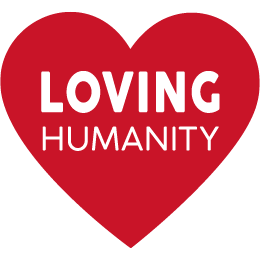
How our work drives progress towards the UN Global Goals
In 2015, world leaders from 193 countries agreed to 17 Global Goals (officially known as the United Nations’ Sustainable Development Goals or SDGs). These goals have the power to create a better world by 2030, by ending poverty, fighting inequality and addressing the urgency of climate change.
Loving Humanity’s work aligns with a number of these goals. Specifically:
Women and girls must be able to access affordable and hygienic menstrual products to achieve good health and wellbeing. When they can’t trust makeshift pads consisting of rags, cut up mattresses, leaves or ash they have to accept and cope with the realities of bleeding through during their heaviest days, thus limiting them to the home.
Without good hygienic solutions, girls and women experience loss of dignity and freedom to live their lives and fulfil their potential. Not only are their lives limited but makeshift pads lead to increased incidence of vaginal infections and infections of the reproductive tract (RTIs). Menstrual hygiene management is a critical component of reproductive health.
It is common for girls to miss 4 to 5 days of school each month due to the lack of a period pad. Unable to keep up with the work and dealing with the shame surrounding their period, girls fall out of the educational system. The right to education is both a human right and route out of poverty – with the ‘girl effect’ well documented by global development bodies and large NGOs including Action Aid, Plan, Oxfam and others. Our work aims to keep girls in education – and reduce the level of absenteeism (reported as up to 20% by UNESCO) caused by lack of access to period pads.
In addition girls often only understand about menstruation after their first period due to the taboos surrounding it. In schools menstrual hygiene education needs to be included in the curriculum for both girls and boys so that we can move towards a healthy understanding of each other to create equality. In Jordan, menstrual hygiene education is not part of the curriculum and mothers are left to educate their girls. However due to the level of shame around the subject, mothers do not pass on the necessary knowledge and girls experience their first bleed with fear.
Taboos and myths related to menstruation often portray women and girls as inferior to men and boys. Mothers and daughters live in shame and suffer the consequences of the taboos of their cultures.
Not only does the stigma and shame of menstruation cloud girls’ self-esteem and society’s view of them but in Kenya, UNICEF reports that 10% of adolescent girls have traded sex for period pads. Our work aims to break the power cycle which leads to sexual violence against girls and women, caused directly by a lack of access to period pads. We do this both through the direct provision of free period pads to schoolgirls and with a growing programme of menstrual health education with our in-country partners.
An estimated 2.5 billion people lack access to improved sanitation - more than 35% of the world’s population. This impacts girls and women specifically when facilities do not ensure privacy and hygiene. Girls and women should have access to both the products and sanitation facilities they need to be able to manage their periods with dignity. We work with our local NGO partners to explore the sanitation requirements (e.g. clean water, incinerator bins) needed to make this possible
Each of our factories provides regular work for 6 or more local women. These women in turn are able to manufacture enough pads to help keep over 1500 girls in school each month. Not only do we work with our in-country partners to ensure that these women are treated with respect and paid a fair wage for the work they do but that while at work they have access to toilets and clean water to be able to manage their periods with dignity.
We recognise that the most important aspect of our work is to support local communities with the best menstrual hygiene solution for them. In refugee camps where there is little to no privacy, washable solutions are not the right answer, hence our development of disposable pads. Where we can, we promote sustainable solutions such as manufacturing washable period pads in our Jordanian factory. In the city where there is more privacy and access to running water washable pads are acceptable.
We are acutely aware that disposable period pads are not a long-term, sustainable solution. With this at forefront of our mind, we are working with our suppliers to develop biodegradable pads and are currently undergoing a costing exercise to produce an environmentally positive pad. However, we have to balance this with the three-fold increase in costs. This is a key development area for us and one for which we need longer-term funding.
